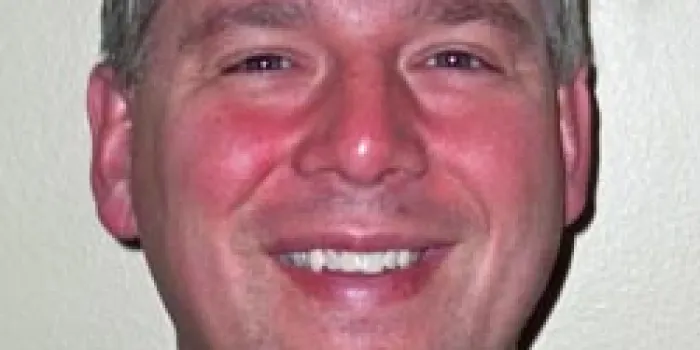HemAware is conducting a series of interviews with recipients of the NHF-Shire Clinical Fellowship. It is funded through the generous support of Baxter Healthcare Corporation. The objective of this grant is to increase the number of skilled clinicians committed to providing comprehensive care for individuals with bleeding disorders and to prepare candidates for academic careers.
This interview was conducted with Shawn Jobe, MD, PhD, assistant professor of pediatric hematology/oncology and director of the Emory University/Children’s Healthcare of Atlanta Hemophilia Treatment Center (HTC). The fellowship was funded from 2004-2006.
Why did you decide to study medicine?
Although Jobe says his answer is “boring,” a career in medicine allowed him to combine two long-standing interests. “I love science and I love kids. Medicine provided me with an opportunity to do both.”
What initially attracted you to hematology?
For Jobe, a mentor provided the spark he needed to ignite his interest in hematology, a field in which he presumed all of the key discoveries had been made. “Jorge Di Paola, whom I met during my residency in pediatrics at the University of Iowa, showed me that there are interesting questions left to pursue.”
How did the training and mentorship you received as an NHF-Shire Clinical Fellow affect your decision to pursue clinical care and/or research in bleeding disorders?
Jobe received the fellowship while at the University of Iowa in Iowa City, and the funding provided the freedom to continue his research and fellowship for a fourth year. “During that year, I had the opportunity to do some hematopathology and to stay in the hemophilia clinic with Jorge and Steve Lentz, MD, PhD, who were both key mentors in my development.” It also allowed Jobe the time he needed to pursue research in the lab, using the data to obtain additional funding through an award he received from the American Heart Association. “This basically set me up for a laboratory position,” Jobe says. “Now I run my own lab at Emory University.”
Are you still engaged in the clinical aspects of patient care or bleeding disorders research? What aspect of care are you most interested in?
As director of the HTC at Emory University/Children’s Healthcare of Atlanta, Jobe coordinates care for pediatric patients with bleeding disorders. He also finds time to study the mechanisms that regulate platelet activation. “Mitochondria, which are thought of as factories for energy, actually play an important role in signaling and in determining how a platelet turns on and where it turns on so it can regulate clotting and thrombosis.”
Did your NHF-Shire Clinical Fellowship assist in advancing your own position at your institution? Or did it serve as a building block to further your career in coagulation?
“It was more of a building block.” The fellowship served as a springboard for Jobe, providing him with the time he needed to engage in research and pursue another award that secured his future. “One of the things it can really do for people in academics is give them time to get a career transition type award.”
Where do you think bleeding disorders research and clinical care may be headed in the near future/next decade?
Jobe believes long-acting factor products and the development of new methods for bypassing agents are making rapid progress currently. “Those are the cool areas right now.” He’s also intrigued by the work of his gene therapy colleagues at Emory, but he projects that will take longer to come to fruition. “What they’re doing with gene therapy is very exciting.”
When you are not working, how do you relax or “escape” from your work?
With five children and a “supportive and loving wife” at home, most of Jobe’s down time is spent with his family. “It’s how I escape from work but to another type of work,” he says jokingly. Jobe can often be found catching one of his children’s lacrosse or football games. The family also enjoys hiking. Attending school functions and church are also priorities for Jobe. “I come from a long line of Lutherans,” he says.
Learn More:
How to apply for the NHF-Baxter Clinical Fellowship.

